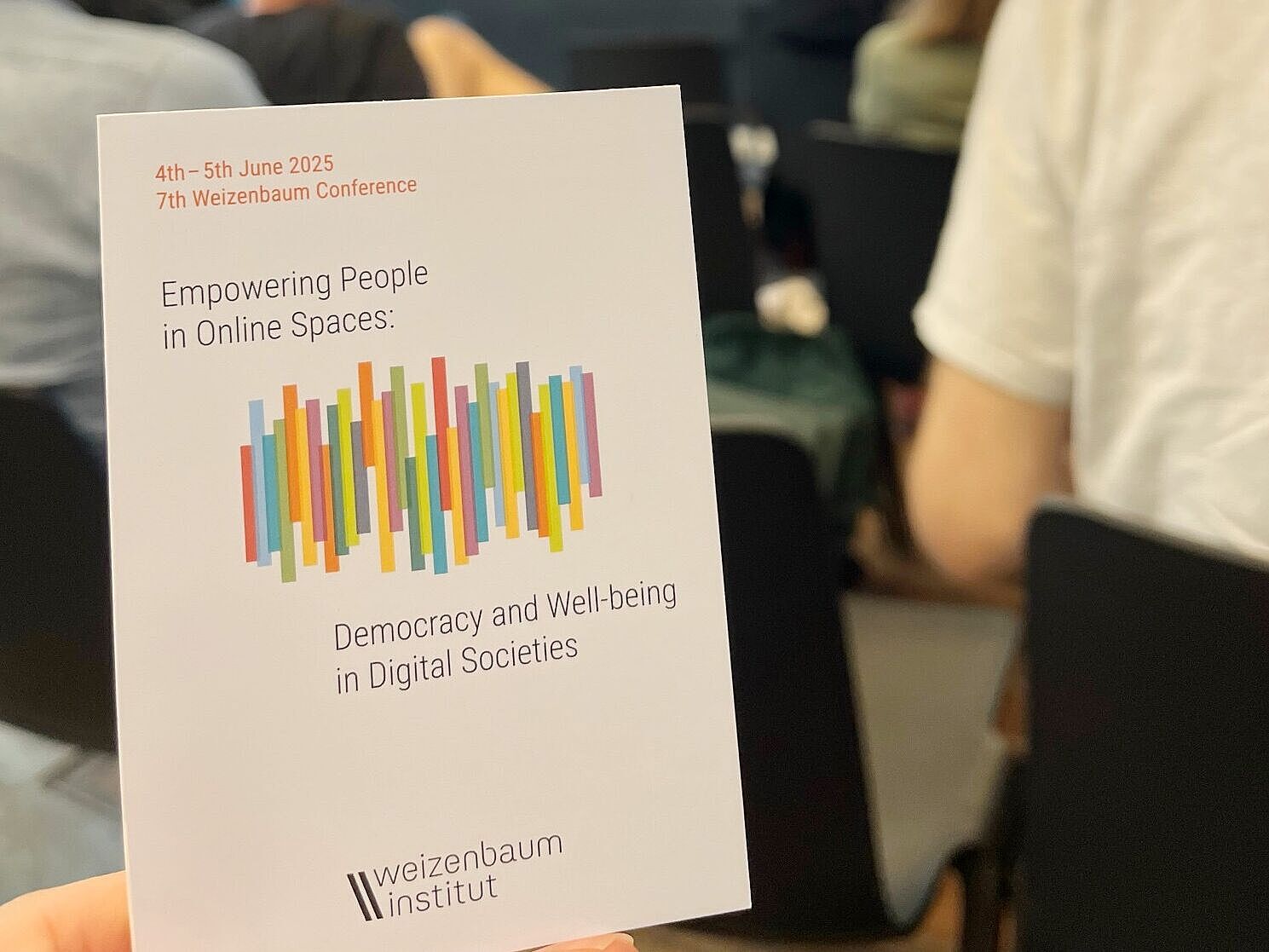
Looking Back at the 7th Weizenbaum Conference
06/13/2025"Empowering People in Online Spaces: Democracy and Well-being in Digital Societies". Under this title, the seventh Weizenbaum Conference took place in Berlin on June 4–5, 2025.
In their opening remarks, conference chairs Clara Iglesias Keller and Jakob Ohme emphasized the crucial role of digital infrastructures in addressing the current challenges facing liberal democracies. A particular focus was placed on the impact of these technologies on vulnerable groups, activists, and democratic processes as a whole.

In her welcome address, Silke Launert—Member of the Bundestag and Parliamentary State Secretary to the Federal Minister for Research, Technology and Space—highlighted: “A science-based, international exchange on the societal implications of digital transformation is essential—and that’s exactly the kind of platform the Weizenbaum Conference 2025 provides. That’s why I’m delighted to take part on behalf of the #BMFTR and look forward to a dialogue on Europe’s digital future.”

And indeed: with nearly 300 participants and speakers from over 25 countries, the event offered an outstanding platform for interdisciplinary and international academic exchange on key questions surrounding democratic participation and individual well-being in digital societies.
Digital Infrastructures and Liberal Democracies
One of the highlights of the first day was the keynote by Claes de Vreese, who answered his central question—“Are we, the citizens, ready for an AI democracy?”—with a clear no. Generative AI, he argued, has become a common tool in election campaigns, but it’s not the miracle solution it’s often claimed to be. He called for greater public involvement and a well-informed societal debate on the use of AI in political contexts.
Later in the day, discussions explored how technologies like artificial intelligence, platform regulation, and algorithmic systems are influencing public discourse, political participation, and social justice. The presentations stood out for their depth and critical perspectives, sparking inspiring and engaged conversations throughout the day.

Data Cultures, Platforms, and Democratic Resilience
The second day of the conference focused on the intersections between data, digital platforms, and political life. Topics included how cultural meanings around data are formed, the risks platforms pose to democratic cohesion, and how mental health is evolving in the digital space.
A special focus was placed on the relationship between science, tech companies, and regulation—particularly in the context of the Digital Services Act (DSA). Other sessions ranged from social media practices in Australian climate debates to the role of TikTok in political discourse.
A major highlight was the panel featuring Maria Exner (Publix), Anna-Katharina Meßmer (Federal Network Agency), and Beatriz Saab (Institute for Strategic Dialogue). From the perspectives of journalism, government, and activism, they discussed how to strengthen democratic resilience in an increasingly constrained civic space—and powerfully reminded us that research, independent journalism, and open dialogue formats need resources to be truly effective.

A Space for Insight, Exchange, and New Alliances
“Once again, we’ve shown that interdisciplinary conferences are not just great spaces to present research—they’re also places where unexpected questions arise, where perspectives from civil society and academia come together, and where meaningful conversations can flourish in an inspiring setting. Our heartfelt thanks to everyone whose contributions, curiosity, and presence made this event such a success,” said conference chairs Clara Iglesias Keller and Jakob Ohme.
Warm thanks go to all speakers, participants, and organizers—and special thanks to Dr. Silke Launert for her participation and forward-looking remarks.